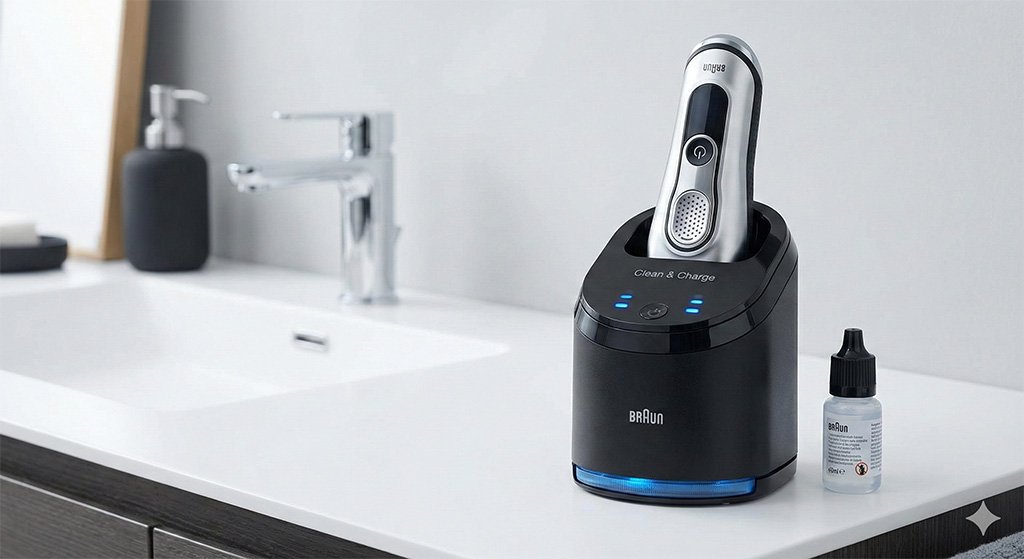Smart washing machines, with their array of modern features, often captivate tech-savvy consumers. However, it’s crucial to look beyond the appealing gadgets and thoroughly assess their potential downsides. The primary disadvantages of smart washing machines often include higher financial outlay, persistent technical glitches, and significant concerns regarding data security and privacy.

While the convenience of remotely controlling your laundry might be alluring, you could encounter challenges that traditional washing machines simply don’t present. Technical problems, from software bugs to connectivity issues, can frequently arise, sometimes necessitating costly professional repairs or crucial software updates. Furthermore, these internet-connected appliances may introduce security vulnerabilities, potentially exposing your personal data.
Investing in a smart washing machine can be tempting, but a thorough evaluation of these drawbacks is essential. If your priorities lie in simplicity, reliability, and cost-effectiveness over cutting-edge features, a traditional washing machine might prove to be a more suitable and stress-free choice for your household.
Table of Contents
High Initial Cost
When considering a smart washing machine, it’s paramount to recognize the significantly higher initial cost compared to conventional models. This section delves into the pricing differences and the potential long-term financial impact you might encounter.
Check Smart Washing Machine Price
Comparison to Conventional Models
Smart washing machines typically start from £500 and can reach upwards of £1,400. In stark contrast, reliable conventional models are often available for £300 to £700. This substantial premium covers features like remote control, energy monitoring, and advanced washing options. While these functionalities promise convenience, their considerable price difference can be a significant barrier for many.
It’s also important to note that the cost of repairs for smart appliances can be notably higher due to their intricate design and sophisticated technology. This often makes conventional models a more budget-friendly choice for consumers primarily seeking basic, reliable laundry functionality.
Long-Term Financial Considerations
Beyond the steep upfront costs, consider the long-term financial implications. While smart washing machines may offer some energy savings through optimized cycles, potentially reducing monthly utility bills, these savings might be offset by other expenses.
You could face ongoing costs related to:
- Software updates: Some manufacturers might eventually charge for premium software features or extended support.
- Tech support subscriptions: Certain advanced diagnostics or features might require a paid subscription.
- Higher repair bills: As mentioned, complex components can lead to more expensive fixes when issues arise.
Assess your laundry habits. If you perform multiple loads weekly, the potential efficiency gains of a smart model might save you money over an extended period. Conversely, if your usage is infrequent, the higher upfront investment may not be financially justified. Ultimately, a thorough cost-benefit analysis is crucial to determine if a smart washing machine aligns with your financial plan.

Complex Technology and Repair Issues
Smart washing machines incorporate advanced technology that can introduce unique challenges when repairs are needed. Understanding these complexities can help you make more informed decisions regarding ownership and ongoing maintenance.
Difficulty of Repairs
The sophisticated nature of smart washing machines makes them inherently more complex to troubleshoot and repair than their traditional counterparts. A malfunction might not have an easily identifiable source, as issues could stem from mechanical, electronic, or software components.
Key repair difficulties include:
- Specialized knowledge required: Many repairs demand expertise in electronics, network connectivity, and proprietary software, beyond typical appliance mechanics.
- Longer service times: The complexity can lead to extended diagnostic and repair times, leaving you without a crucial appliance for longer periods.
- Higher repair costs: Advanced parts and specialized technician skills often translate to significantly higher repair bills. Even minor software glitches might necessitate a costly professional visit.
Availability of Qualified Technicians
Finding a qualified technician for smart washing machines can be a substantial challenge. Not all appliance repair professionals possess the specialized training and tools required to service these modern appliances.
This limitation can significantly restrict your options for quick repairs, especially in areas with fewer smart appliance specialists. You might need to conduct extensive research to locate a technician familiar with your specific smart washing machine brand and its intricate systems. In many cases, the high demand for these skilled professionals can further drive up repair costs, adding to your overall expenses.
Dependence on Technology
Smart washing machines fundamentally rely on technology for their core operations and advanced features. This dependency can lead to several concerns, including susceptibility to software issues and the risk of rapid technological obsolescence.
Software Malfunctions
Smart washing machines utilize complex software to manage an array of features, such as remote control, cycle scheduling, and performance monitoring. When this software encounters bugs or glitches, it can directly impact the machine’s functionality. You might experience:
- Unresponsive controls: The machine might fail to respond to commands from its digital interface or smartphone app.
- Interrupted cycles: Wash cycles could stop unexpectedly mid-operation.
- Connectivity failures: The machine might lose its Wi-Fi connection, rendering smart features unusable.
Frequent software updates are often necessary to patch vulnerabilities, improve performance, and maintain compatibility. Neglecting these updates can lead to further malfunctions or security risks. Resolving software-related issues can be frustrating and time-consuming, sometimes requiring a call to customer support or even a technician’s visit.
Risk of Obsolescence
Technology evolves at an incredibly rapid pace, and smart appliances are no exception. A smart washing machine equipped with the latest features today could feel outdated within a few years. As newer models are released with improved AI, more advanced sensors, or different connectivity standards, your current machine may no longer support the latest apps or features.
This risk of obsolescence implies you might need to replace your washing machine sooner than you would a traditional model, which typically has a much longer functional lifespan. Furthermore, as models become obsolete, finding replacement parts for repairs can become increasingly difficult, potentially leading to a non-functional appliance that simply cannot keep pace with modern technological advancements.

Environmental Concerns
While smart washing machines often boast features aimed at efficiency, they also raise important environmental considerations. It’s essential to understand how their underlying technology contributes to energy consumption and the growing problem of electronic waste.
Energy Consumption
Despite claims of optimizing water and energy usage, smart washing machines may still consume more electricity than traditional models due to their constant connectivity. Many smart machines remain connected to Wi-Fi, requiring energy even when not actively running a wash cycle.
These appliances often house sophisticated sensors, processors, and communication modules that operate continuously in the background. This “always-on” state can lead to higher phantom load energy consumption and increased overall electricity demand. The environmental impact extends beyond your home: as more households adopt these devices, the cumulative energy drawn from the power grid can contribute to higher carbon emissions, particularly if the electricity supply relies heavily on non-renewable sources.
Electronic Waste (E-waste)
Smart washing machines contain a significant number of complex electronic components. When these appliances reach the end of their useful life, their disposal poses a considerable environmental challenge. Unlike simpler, traditional machines that might have more readily recyclable mechanical parts, smart models often incorporate a variety of non-recyclable or difficult-to-recycle electronic components.
Electronic waste, or e-waste, is a rapidly growing global concern. Improper disposal can lead to harmful substances like lead, mercury, and cadmium leaching into the environment, contaminating soil and water supplies. Recycling options for smart appliances may be limited or difficult to access, and many consumers might not be aware of the proper, responsible disposal methods for these tech-laden devices. As you consider purchasing a smart washing machine, weigh these electronic waste concerns against the perceived benefits of advanced technology.
Security and Privacy Risks
Smart washing machines, while offering enhanced convenience, come with significant concerns regarding data security and personal privacy. Understanding these risks is vital for making informed decisions about integrating these devices into your home network.
Data Security Vulnerabilities
Smart washing machines collect and transmit a variety of data about your usage patterns. This can include sensitive information such as:
- Laundry habits: Frequency of washes, preferred cycles, and timing.
- Detergent preferences: Types and brands used.
- Energy consumption data: Detailed records of power usage during cycles.
Data security risks include:
- Unauthorized access: If the machine’s data or your connected home network is not adequately secured, cybercriminals could gain access to your personal information.
- Data leaks: Manufacturers or third-party service providers might inadvertently expose your data through breaches or share it with other entities, leading to potential misuse for marketing or other purposes.
To mitigate these risks, always use strong, unique passwords for your Wi-Fi network and smart appliance accounts. Enable two-factor authentication if available, and regularly update your washing machine’s firmware to patch any known security vulnerabilities.
Potential for Hacking
The connected nature of smart appliances makes them potential targets for cyberattacks, as they are part of the broader Internet of Things (IoT). Cybercriminals often seek vulnerabilities in IoT devices to gain access to home networks.
Consider these points:
- Remote control exploitation: While convenient, the ability to control your washing machine remotely can be exploited if your home network is insecure.
- Network entry point: A compromised smart washing machine could serve as an entry point for hackers to access other devices on your home network, including computers and smartphones, leading to broader data theft or even physical security risks.
- Past incidents: There have been instances where less-secured smart home devices were used in botnet attacks or exploited to steal personal data.
To reduce your risk, ensure your home Wi-Fi network is robustly secured with a strong password and WPA3 encryption (if supported). Change all default device passwords immediately upon setup, and regularly review what devices are connected to your network. Consider isolating smart devices on a separate guest network for enhanced security.
User Experience Complications
Smart washing machines, despite their promise of convenience, can introduce various complications related to the user experience. These challenges often stem from the technological complexity itself, requiring users to adapt their habits and technical proficiency. Understanding these potential issues can help you navigate your smart appliance more effectively.
Steep Learning Curve
Operating a smart washing machine often involves a steeper learning curve compared to a traditional model. These machines come with numerous features and settings, frequently accessed through a dedicated smartphone app or an advanced digital interface.
You might find it challenging to:
- Navigate complex apps: Understanding the layout and functionality of the companion app can take time.
- Utilize advanced options: Getting familiar with specific wash cycles, customizable settings, and smart home integrations can be overwhelming.
- Initial setup: Many users struggle with the initial Wi-Fi connection and app pairing processes.
Issues can arise from incorrectly programmed cycles or settings that aren’t suitable for certain fabrics. This learning process can be particularly daunting for individuals who are not tech-savvy, potentially leading to frustration. Patience and a thorough review of the instruction manual are essential for maximizing the machine’s capabilities.
Overreliance on Automated Features
While automated features offer significant convenience, an overreliance on them can sometimes lead to suboptimal results or unexpected problems. Smart washing machines often boast settings designed to “optimize” your laundry experience, but they may not always account for every variable.
For instance:
- Automatic fabric detection: May not always accurately select the best cycle for diverse fabric types mixed in a single load, potentially leading to under-cleaned or overwashed clothes.
- Auto-dosing systems: While convenient, these might not perfectly adjust to highly soiled items or specific detergent preferences, causing either overuse or underuse of detergent.
- Reduced manual control: Constantly relying on the machine’s decisions might lead users to forget the importance of manual adjustments for specific needs, or how to operate the machine if smart features fail.
Balancing the use of automated features with your judgment is crucial for achieving the best laundry results. There may be instances where a simple manual setting or a slight adjustment is more effective than a complex automated one.

Maintenance and Longevity
Smart washing machines demand ongoing attention to maintain their performance and extended lifespan. You should be aware of the necessity for regular software updates and consider the durability of their hardware components. Both factors directly influence how long your machine lasts and how effectively it operates.
Regular Software Updates
Unlike traditional appliances, many smart washing machines require consistent software updates. These updates are vital for:
- Enhancing security: Patching vulnerabilities that could be exploited by hackers.
- Adding new features: Introducing improvements or new functionalities.
- Maintaining compatibility: Ensuring the machine works seamlessly with updated apps or smart home ecosystems.
- Improving performance: Optimizing wash cycles and energy efficiency.
If you neglect these updates, your machine may become less efficient, encounter more glitches, or become vulnerable to security risks. Updates often occur every few months, and your machine or its companion app will typically notify you when they are available. Making it a habit to check for and install updates is crucial for smooth operation and data protection.
Hardware Durability
The hardware in smart washing machines is inherently more complex than that of traditional models. The inclusion of additional sensors, circuit boards, Wi-Fi modules, and other smart components introduces more potential points of failure and a higher likelihood of wear and tear over time.
Consider:
- Component failure: More complex electronics mean more components that can malfunction or break down.
- Repair costs: As previously mentioned, repairs for these intricate components can be significantly more expensive.
- Component availability: For older or discontinued smart models, finding replacement parts for specific smart components can become a challenge.
While manufacturers are striving for better quality, consumers should prioritize machines made with high-quality, durable materials. Regular preventative maintenance checks, even simple ones like cleaning filters and hoses, can help catch potential issues early. This proactive approach can help save money on repairs and potentially extend the effective life of your smart washing machine. Keeping a keen eye on both software and hardware maintenance will maximize your investment and ensure dependable performance.
FAQ
What are the common issues with the longevity of smart washing machines?
Smart washing machines can sometimes have shorter overall functional lifespans compared to traditional models, especially concerning their “smart” features. This is often due to their reliance on advanced, rapidly evolving technology and electronic components, which may be more prone to failure or become unsupported as technology progresses. Components like Wi-Fi modules and smart sensors could malfunction, leading to a loss of smart functionality even if the core washing machine still operates.
How does the complexity of smart washing machines impact user experience?
The advanced features of smart washing machines can create a significant learning curve for some users. If you’re not tech-savvy, understanding and utilizing the companion apps, connecting to Wi-Fi, or troubleshooting connectivity issues might be frustrating. Complex digital interfaces can lead to confusion during operation, potentially making simple laundry tasks feel more complicated than necessary.
Are there increased maintenance costs associated with smart washing machines?
Yes, smart washing machines can have higher maintenance costs. The sophisticated technology involved often means that specialized tools, diagnostic equipment, and expert technicians are required for repairs. If a smart feature fails or the appliance requires specific software updates that can only be performed by a professional, these costs can accumulate and be significantly higher compared to maintaining simpler, traditional models.
What are the privacy and security concerns with connected smart washing machines?
Smart washing machines, being connected to the internet, raise potential privacy and security concerns. Data such as your washing habits, usage patterns, and even network information may be collected and stored by the manufacturer or third parties. Furthermore, if the machine or your home network has weak security protocols, it could be vulnerable to hacking, putting your personal information at risk or even allowing unauthorized control of the appliance.
How do smart washing machines perform in terms of water and energy efficiency compared to traditional models?
Many smart washing machines are designed to be more energy and water-efficient than older traditional models, often using sensors to determine optimal water and detergent amounts. However, some energy savings can be offset by the “always-on” power consumption of their Wi-Fi modules and internal processors. While they can potentially lead to lower utility bills over time, the initial higher cost needs to be factored into the overall “efficiency” calculation.
Can the use of smart washing machines lead to a dependency on technology for basic tasks?
Yes, relying heavily on smart washing machines can foster a dependency on technology. Users might become accustomed to using apps for remote control, scheduling, and notifications. This reliance could become problematic if internet connectivity is lost, if the app or machine software experiences glitches, or if the manufacturer discontinues support, potentially leaving users unable to perform basic laundry tasks without the expected technological assistance.
Bottom Line
While smart washing machines offer attractive features, the disadvantages of smart washing machines are significant. Higher costs, technical glitches, and security risks are notable concerns. Additionally, issues like a steep learning curve and rapid obsolescence can impact user satisfaction.
It’s crucial to weigh these drawbacks against the perceived benefits. Carefully consider your budget, tech comfort, and long-term needs to choose a washing machine that truly fits your household, prioritizing reliability and simplicity if cutting-edge features aren’t your top priority.




Leave a Reply